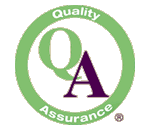The Q & A Program has been written with a primary focus on pulse crops (peas, lentils, & chickpeas) grown in Washington State. These crops have been passed up or missed by the certification process for several reasons. The primary reason being that many of the early varieties used were public varieties that were developed and given to all growers/companies without any process for seed stock maintenance. Because of the method of release these varieties are also not eligible for certification. There has always been a concern about the cost that is currently associated with certification and the low value of pulse crops.

With the WSCIA Q & A Program we address these issues and bring pulse crops into a maintenance and certification program that benefit both growers and companies using these crops. Many of the early common varieties are still in use today and with a collaborative effort between WSCIA and the seed producers bringing these lines into the Q & A Program will give the grower and seed companies a process to assure a quality product. With Washington growers seeing the advantages of small grain certification by having one of the highest percentages of certified seed in the United States, WSCIA’s intent is to stress these same advantages of quality assurance and certification in the pulse industry.
The present cost and procedures for seed certification is set by state law and these costs and requirements work well for cereals and other higher value crops but not for pulse crops. The WSCIA Q & A Program adjusts these costs and procedures to better reflect the growth habits, genetics and value of the crop. Even with these adjustments the overall standards are still at a minimum, comparable to a certified class of seed.
